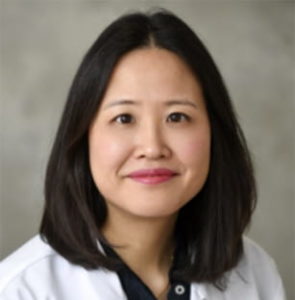
In the aftermath of the #MeToo and #TimesUp movements that have sparked national dialogue about discrimination and mistreatment of women, more and more data underscore how bias and burnout are affecting female physicians in gastroenterology.
“Gender bias obviously exists in all areas of life, in all jobs, and not surprisingly, there’s gender bias in gastroenterology,” said Ji Young Bang, MD, of Digestive Health Institute at Orlando Health, who discussed data on the topic at DDW® 2021. “I want my fellow GI physicians and endoscopists to know: you’re not alone. Every woman has felt this way at some point. But I think what is different now is that people are making a conscious effort to improve things, especially our fellow male physicians. And things are starting to look better.”
Along with sharing data on the incidence, manifestations and effects of gender bias in gastroenterology, Dr. Bang discussed the linkage between gender bias and burnout, which can have deleterious effects on both providers and patients. Multiple studies, she said, have shown that gender bias can lead to emotional and physical exhaustion, which then affects quality of patient care and outcomes. Other research shows gender bias and burnout can be associated with potentially debilitating comorbid conditions, such as musculoskeletal pain and mental illness.
How can clinicians and institutions make inroads to prevent and overcome gender bias? Dr. Bang suggested the following:
- Don’t stay silent. Talk with one’s division chief (who statistically, she said, is likely to be male) about your experiences with gender bias at work, including, if possible, sharing data and documented evidence about those experiences.
- Consider cultural changes. Several workplace structures can help create a culture of support and mitigate burnout associated with gender bias, such as mentorship programs, employee assistance and counseling programs, flexible work schedules for women caring for children or other dependents and generous maternity leave.
- Create safe spaces. Institutions or departments can develop gender-based well-being programs, resources and support networks to help women discuss their experiences with bias and discrimination, and strategies to combat it, such as a “women in endoscopy” group or “women in GI.”
- Stay open-minded. Women often feel that discussing gender bias at work will get them branded as troublemakers or that they will be perceived as having ulterior motives. Institutions and departments play a big role in easing or exacerbating these perceptions, so leadership should stay open-minded when they hear about gender bias in their program and they should listen to what female physicians have to say.
“I think everyone is more aware of gender bias and doing the best we can. People are becoming more open to change,” said Dr. Bang. “Male physicians, female physicians, patients, society as a whole — we all have to recognize that gender bias exists and not only affects women; it affects everybody.”
Dr. Bang’s oral presentation of “Bias, bravery, and burnout” took place on Saturday, May 22, at 5:50 p.m. EDT, as part of the ASGE session, “Focus on GI Career: An ASGE Women in Endoscopy Symposium.”




One Response
What does one do one you are told to hush the matter ..
and your boss will not speak